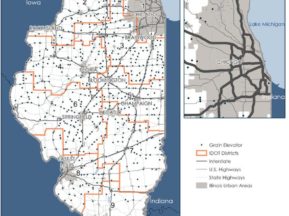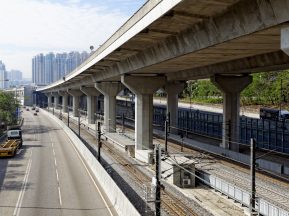National Cooperative Highway Research Program (NCHRP) 08-124

The multi-level and inter-related nature of corridors, ranging from as small as local-level nonmotorized users to national and global road, rail, and water networks, requires systemic and coordinated research in order to solve the negative societal externalities stemming from the build-out of transportation networks. By broadening the definition of Corridor Management (CM) to include an emphasis on land development and support for dependent land uses in concert with the previous points of roadway design, access control, and traffic operations, this research will promote advanced CM practices to bring about long lasting and wide-ranging benefits such as improved safety, reduced congestion, improved mobility for people and goods thereby facilitating commerce and trade, business attraction, orderly and more sustainable growth, and improved aesthetics of neighborhoods near corridors.
Integrated Corridor Management (ICM) are operational policies, analytical tools, and intelligent transportation system (ITS) technologies focused on easing congestion, providing information, and responding to emergency situations by routing traffic flow appropriately to reduce travel times for passenger and freight users. Led by Metro Analytics, Quetica and its project partners will build on previous ICM research by incorporating new analytical tools with current practices. In particular, the team will utilize its unmatched data resources to both (1) identify and test a far more robust set of corridor impact variables than would otherwise be the case and (2) to identify key associations between corridor performance indicators that will be relevant both for land use planning and freight system performance.
Ultimately, the NCHRP 08-124 research team will:
- Provide insight into the relationship of CM with ICM and how to coordinate stakeholders and jurisdictions to optimize corridor planning and operations at different levels
- Develop new performance measures that:
- Show the trade-offs between managing corridors to sustain the highest and best land uses versus high vehicle throughput, ensuring that corridors function well and remain attractive for development
- Quantify different types of outcomes for stakeholders in conflicted corridors that enable parties to effectively balance and articulate corridor management decisions
- Produce the analytical tools needed by national, state, and local decision makers to both quantify the impacts of CM and provide strategies and approaches for implementation by state and local agencies implement better CM.
- Identify key variables, relationships and methods for quantifying corridor performance that are both validated by the unique resources of this team and easily replicable by practitioners everywhere.





